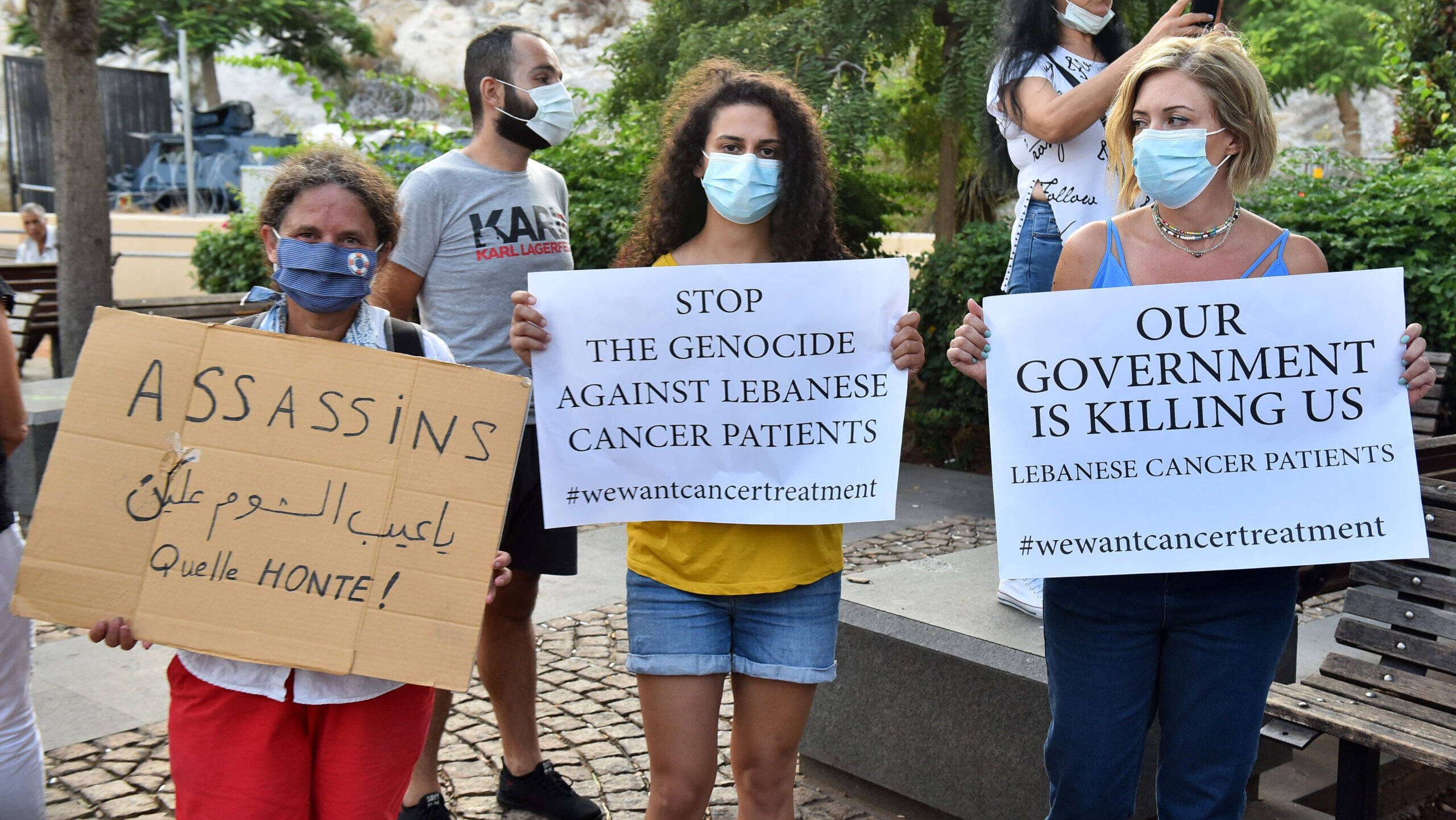Cancer Patients Struggle To Obtain Medical Care Amid Lebanon’s Economic Collapse
Lebanon has one of the world's highest cancer rates, but with its economy in crisis, medications have become unaffordable and scarce, leading to devastating effects on patients' life expectancies
Jonathan Karam was just one year old when his parents noticed something strange in his urine. After several hospital tests, they received the terrible news that their baby had a 12-centimeter tumor caused by prostate cancer, a disease that usually strikes older men, not little boys.
But while prostate cancer is relatively treatable in Western countries, in Lebanon, the family has been struggling to be able to get their son the treatments he needs.
“In a month, working at three different jobs, I am only able to pay for one chemotherapy session,” Jonathan’s father, Joe Karam, told The Media Line.
“I’m his father, what am I supposed to do? Day after day, the situation keeps getting worse, and we have had to buy the chemotherapy [drug] in Turkey or France and bring it here. I work from 7 in the morning to 11 at night and bring home $100.”
Lebanon is suffering from one of the worst economic crises the world has seen in the last 150 years, according to the World Bank. At the same time, it has one of the highest cancer rates in the world, with 284 cases for every 100,000 citizens in 2018. This marked a 48.7% increase in 15 years, from 191 for every 100,000 citizens in 2003, according to data provided by the World Health Organization Cancer Observatory. In 2020 alone, more than 11,000 new cancer cases were diagnosed. There are currently around 29,000 cancer patients in the country.
With the economic crisis of recent years, medications have become expensive and unaffordable for many. In addition, there is a shortage of needed medicines and an absence of treatment options, which are said to be causing more deaths than the cancers themselves.
“Our government is killing us,” read the banner of a cancer patient during a recent demonstration. Some have complained to the Lebanese government and to the international community, calling for a stop to the “genocide” perpetrated by the political class. “We refuse to have a life countdown,” they have been saying in the streets.
Before the devastating crisis that impoverished the country began four years ago, Lebanon was able to import more than 95% of the medications it needed, including cancer drugs and treatments, compensating for its low local pharmaceutical production. But the financial collapse and the devaluation of the local currency have reduced Lebanon’s capacity to import medicines, with a devastating effect on doctors’ abilities to treat patients and on patients’ life expectancies.
The nightmare of every doctor is to be in front of a patient knowing that there is a treatment, that there is something that can be done, and not being able to do it due to external factors of a political or economic nature
“The nightmare of every doctor is to be in front of a patient knowing that there is a treatment, that there is something that can be done, and not being able to do it due to external factors of a political or economic nature,” Dr. Roula Farah, founder and president of the CHANCE Association, which supports children in Lebanon with cancer, told The Media Line.
“Although we are not responsible for providing medicines to patients, as doctors we are in the middle of this humanitarian and health crisis and we cannot stop acting,” she said.
In hospitals, doctors are often forced to prioritize patients to treat those most likely to survive. Often, they must look for substitute drugs. Lebanese expatriates around the world are heavily called upon to help keep the sick in their country alive.
“But some [medicines] have no substitute and we have to get them at all costs,” Farah said.
“The Lebanese people are tremendously resilient, but that does not mean that they are not tired and angry, that they are not fed up with witnessing injustice,” she said.
Karam despaired of the economic adversities too.
This country is only going backward and those like us who are left out are forced to make noise
“We don’t live, we work all day to ensure Jonathan’s treatment, and that’s without counting our basic food expenses,” he said. “This country is only going backward and those like us who are left out are forced to make noise.”
While the Lebanese political class engages in discussions about electing a new president after 12 failed sessions, the Lebanese people struggle and protest that “health cannot wait.”
“This doesn’t happen anywhere else in the world,” Karam said. “But at the same time, we’re strong. We have to be there for Jonathan.”

